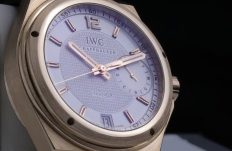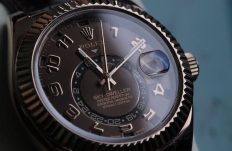The watch industry isn’t based purely on first-hand purchases and second-hand scrap metal sales. Fine timepieces are an investment with the potential for even greater returns on resale. Many of them increase in value the older they become, so you might be lucky enough to be carrying a goldmine on your wrist.
Know Your Buyer
Buyers of used watches can be divided into those who appreciate the ancient art of horology and those who see nothing more than a precious metal to turn into scrap. Used watches are frequently worth far more than their nostalgic value, and a passionate buyer understands not only which brands are of exceptional worth, but which models too. Their profit model is taken from offering you the convenience of a knowledgeable eye in exchange for their services in selling your timepiece to backend buyers hidden away where the general public cannot access them. Your buyer will know how accurate your timepiece is and how timeless its design is.
Manage Your Expectations
Most people understand the value of the ‘Rolex’ label, but a professional buyer knows the difference between a Patek and Beitling. You can usually expect to receive a sparkling price for these used watches:
- Omega
- TAG Heuer
- Audemars Piguet Royal Oak
- Patek Phillipe Calatrava
- Panerai
- Breitling
Even so, not all labels have value across models. Some do gain value over time, but some models devaluate. Even stainless steel sport Rolexes aren’t a sure investment because not all of them become classics. Women’s watches tend to sell for less than men’s do because demand for them is lower. Your buyer will thus evaluate more than the name on the face. Used watches have had enough years to appreciate in value, but those that are only five years away from their sell date are best kept until they’ve had time to fetch a better price.
Beware of Fakes
Replica watches abound, and they are often sold online, so it’s not always easy for consumers to recognize a fake. Your buyer will know how to assess the color, features and design to determine your timepiece’s authenticity.
Used Watches that Depreciate
Some timepieces are like cars—the moment they leave the store, their value decreases. Most expensive haute horology watches devaluate quickly because few collectors want them. If you’re fortunate enough to have a timepiece of worth on your hands, it won’t sell at the same price regardless of the dealer you choose. An Ulysse Diver, for example, fetched offers that varied by a startling 79% between retailers. For this reason, you’ll want to ascertain the expertise of the retailer you’re selling to so that you can do your business with an acceptable level of trust. Like every business, jewellery shops aim to make a profit, so don’t expect to fetch 100% of the current value for your used watches. They do aim to help and serve, however, so good dealers won’t be looking to exploit you.
Broken Watches
Most dealers will buy broken watches if they can be fixed relatively easily. While they do use condition to determine value, they’re not opposed to refurbishing what they buy. It’s rare for a sold watch to be in such good condition that it doesn’t require cleaning and polishing. If the repair will cost more than the timepiece’s value, it might need to be bought for its melt value.
How Easy is It?
Selling used watches is not as easy as selling scrap gold. Legitimate buyers are rare, and not all offer cash loans as well. Contact us online, or visit us at our Yonge store front today to receive the expertise, passion, and knowledge of an ethical dealer.








